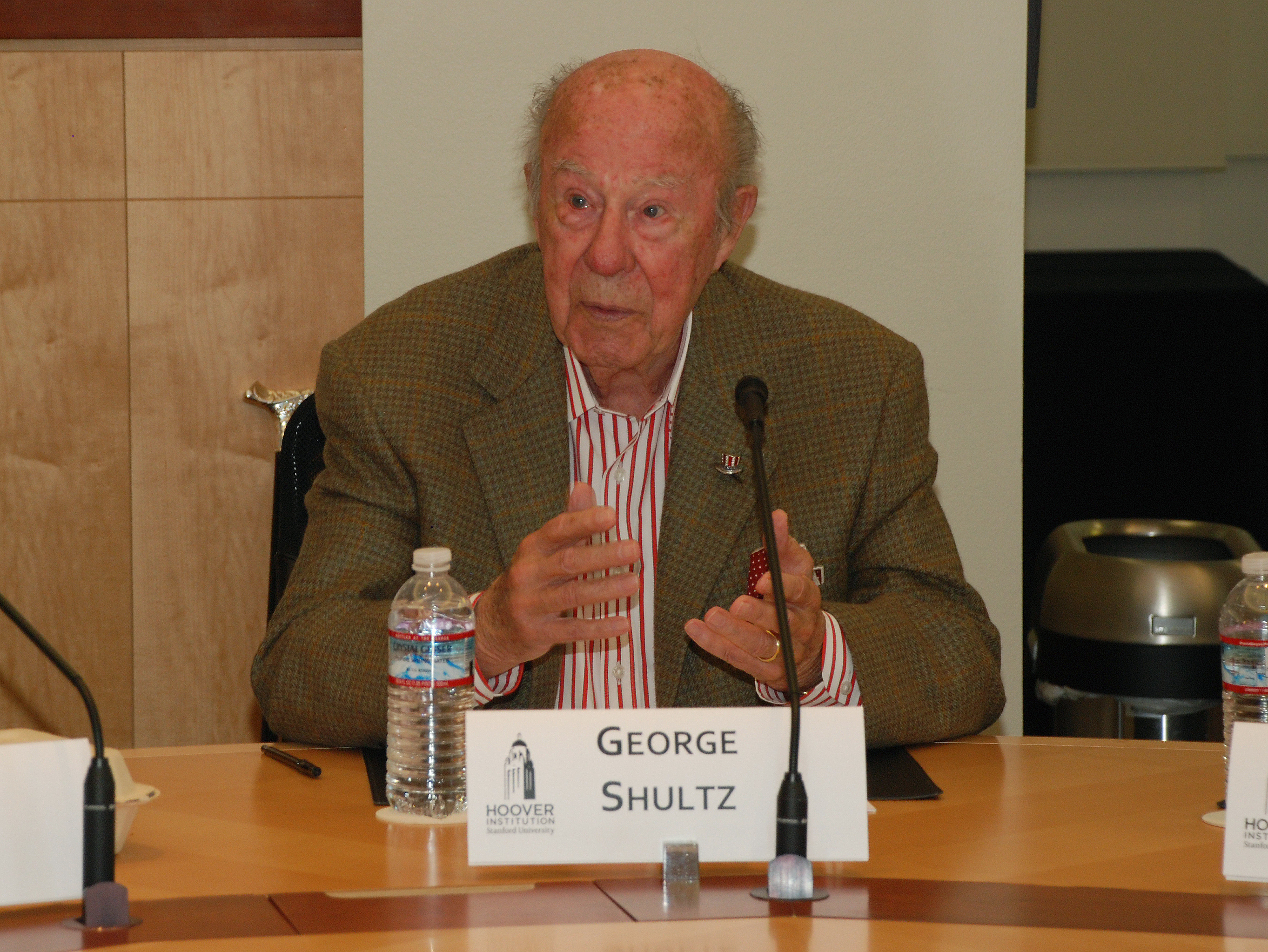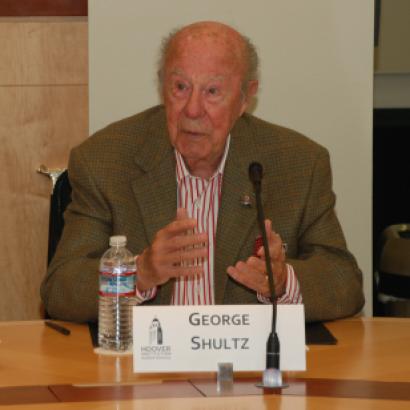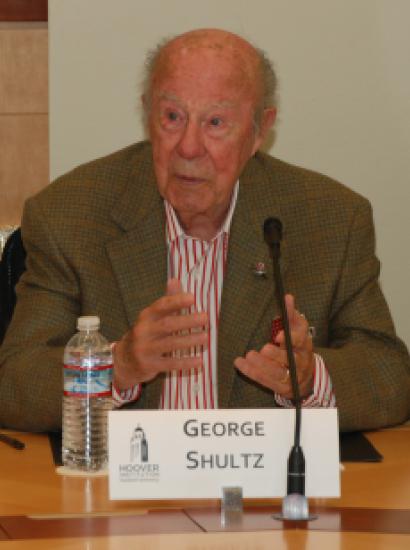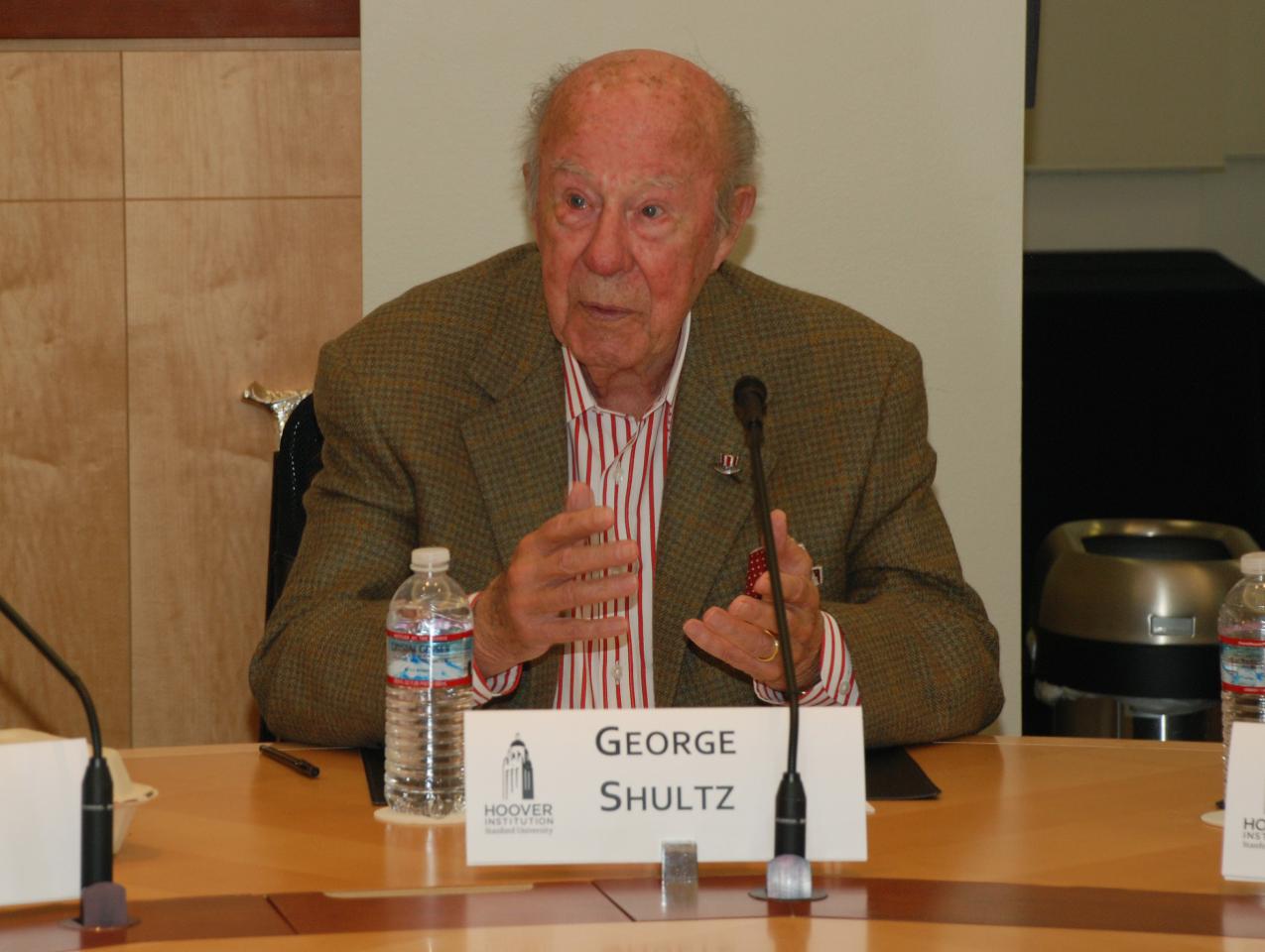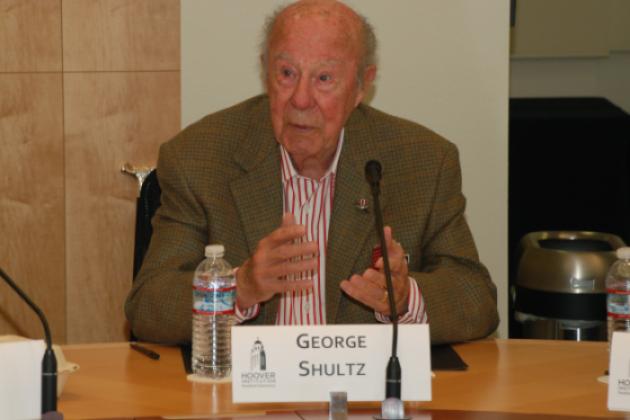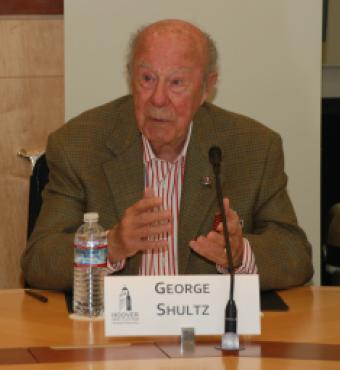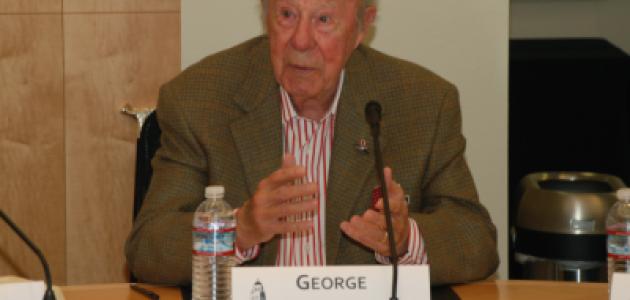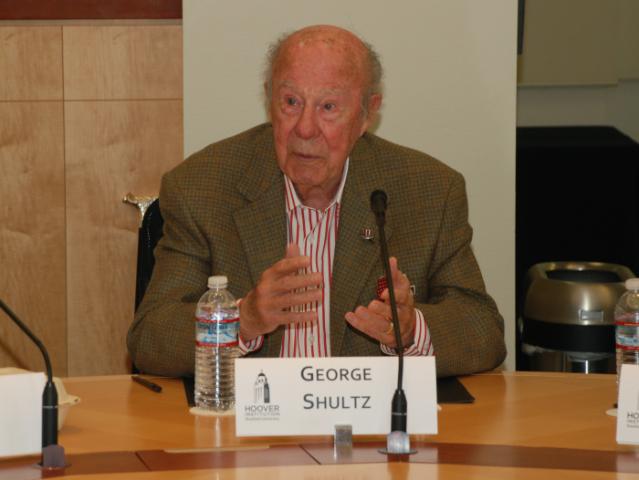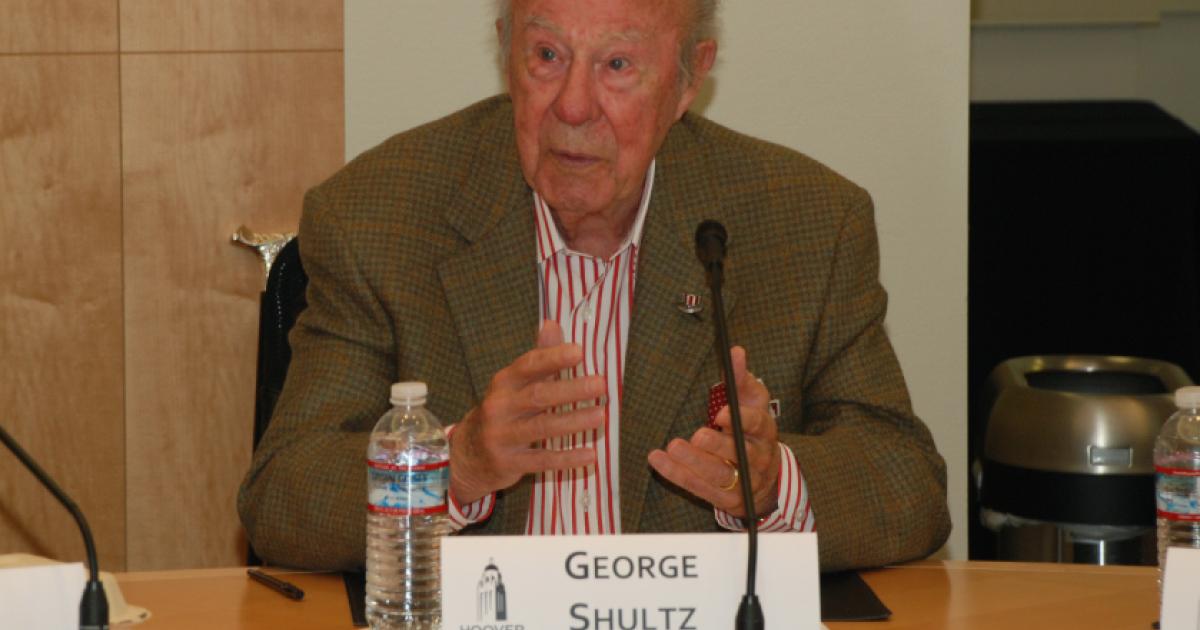The nonviolent resolution of the Cold War owed much to the Reagan administration’s work to bring about a peaceful regime change from within the Soviet Union. Reagan based his strategy on an insight from Hoover Institution senior fellow Henry R. “Harry” Rowen, who showed that beyond the Soviet veneer of military power laid an exhausted economy and unstable regime that could be pushed over the brink of collapse. Can Reagan’s strategy be applied to the Soviet Union’s modern authoritarian counterparts? Or are today’s rogue regimes too different for meaningful parallels to be drawn?
According to Hoover Institution visiting fellow Yuri Yarim-Agaev, a native of Russia, a former Soviet dissident, and an authority on international human rights, Cold War diplomacy isn’t only relevant today, it’s crucial for dealing with modern threats in the international arena. He applied this argument to US policy toward Iran in an August 2015 National Review opinion piece criticizing the Obama administration’s abandonment of Iranian regime change as a strategic goal.
That op-ed sparked a conversation within Hoover on the practicality of Cold War–era diplomacy today, revealing a lack of consensus on rules for negotiating with authoritarian actors. In response, Yarim-Agaev convened a roundtable forum entitled “Reagan’s Soviet Policy as a Guide to Dealing with Iran, North Korea, and Other Rogue Regimes,” featuring Hoover’s leading experts on international diplomacy: George P. Shultz, Charles Wolfe Jr., Kori Schake, Michael McFaul, Abe Sofaer, and Abbas Milani, moderated by Paul R. Gregory.
Hoover dedicated the panel to the memory of Harry Rowen, who helped Yarim-Agaev develop the roundtable before his death in November 2015 at age ninety. Rowen, whose research papers are in the Hoover Archives, would have added much to the conversation. He was an expert in international relations and economic development and served as chair of the National Intelligence Council under President Regan, as assistant secretary of defense for international security affairs under President George H.W. Bush, and later on the Secretary of Defense Policy Advisory Board and the Presidential Commission on Intelligence of the United States Regarding Weapons of Mass Destruction. In his opening remarks, Yarim-Agaev praised Rowen as “a good friend and a very profound mind”; Rowen’s daughter Sheila attended the forum in his honor.
The panelist’s remarks, presented below as audio recordings, include comparative analyses of political, economic, ideological, and social factors in the Soviet Union and modern authoritarian states; historical narratives on successes and failures of Cold War diplomacy; and personal anecdotes from inside the United States’ policy-making apparatus. Although the panelists voiced varying viewpoints on security strategy, they bring clarity to how the strategic insights of Ronald Reagan—and Harry Rowen—can be applied today.
Yuri Yarim-Agaev
Yuri Yarim-Agaev offers a methodical approach to the topic, explaining key general characteristics common to authoritarian regimes, including intrinsic opposition to US interests. As a result, according to Yarim-Agaev, regime change is the only viable solution to security threats from rogue actors. He argues that Ronald Reagan’s strategy for fostering peaceful change from within was proven effective during the Cold War and is an equally viable strategy for dealing with contemporary authoritarian regimes.
George P. Shultz
Secretary Shultz’s work alongside Ronald Reagan in crafting Cold War strategy and negotiating with Soviet leaders adds a valuable firsthand dimension to the discussion. Shultz outlines President Reagan’s diplomatic “playbook”: execute against your word, be realistic, lay a strong hand, and know your agenda, illustrated with personal stories from his experience in executive office. He also applies these lessons to current US relations with Iran and China, demonstrating a troubling deviation of today’s diplomacy from tested strategic principles.
Charles Wolf Jr.
Wolf’s remarks center on fostering reform in China, offering a counterpoint to Yarim-Agaev’s focus on regime change and support for internal dissidents. According to Wolf, several avenues for further democratic evolution, political reform, and marketization exist within the People’s Republic of China’s existing institutional framework. He suggests that stimulating further interaction between professional organizations in the United States and their bureaucratic equivalents in the Chinese Communist Party is the most practical strategy for accelerating such reforms.
Kori Schake
Schake introduces economics to the discussion, describing effectively targeted sanctions as one of the most powerful diplomatic tools available to policy makers. She attributes the Reagan administration’s success in Cold War negotiations to pragmatism, including open lines of communication, recognizing opportunities for advancing the US agenda, building partnerships in the international community, and supporting ideological allies within rogue states. She also emphasizes the United States’ soft power as an intellectual influence on the world’s elites as a promising force for change.
Michael McFaul
According to McFaul, some—but not all—of the lessons from Reagan’s Cold War diplomacy are applicable today, although, even under identical circumstances, the same strategy may not produce the same results. Applying this equivocal perspective to current issues in international relations, McFaul’s remarks give an informative overview of the challenging landscape faced by diplomats and strategists.
Abraham D. Sofaer
Sofaer argues that Reagan’s Cold War strategy offers important lessons for contemporary US policy toward Iran, despite Reagan’s failure to apply those lessons in his own negotiations with the Iranian regime. Recounting five principles from Reagan and Shultz’s diplomatic work with the Soviet Union, Sofaer shows how parties opposite the table can be effectively engaged without losing focus on the US agenda.
Abbas Milani
Milani focuses on Iran but paints a more complex picture of a state divided, with movements toward reform and international engagement clashing against authoritarian elements within the government. Stressing understanding a regime as a crucial prerequisite to effective strategy, Milani calls for targeted US policy toward Iran that bolsters movements for change and undermines support for the status quo.







